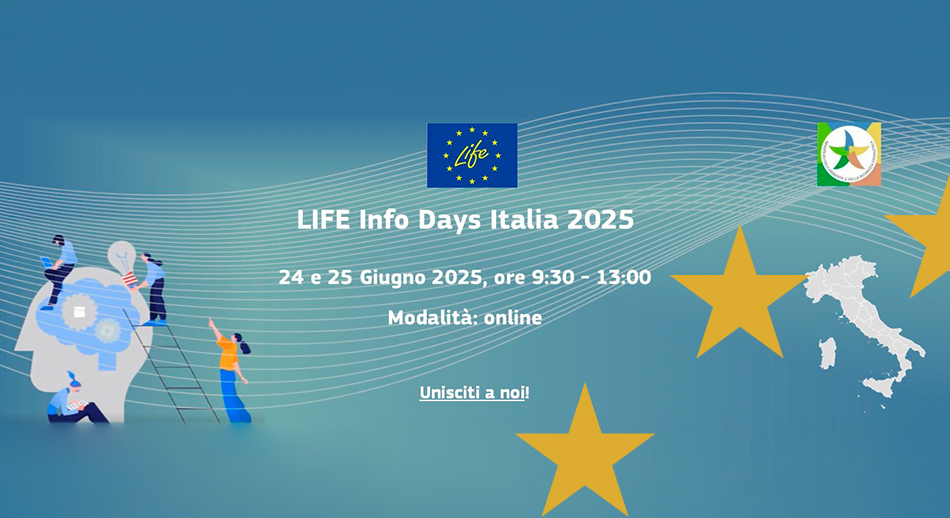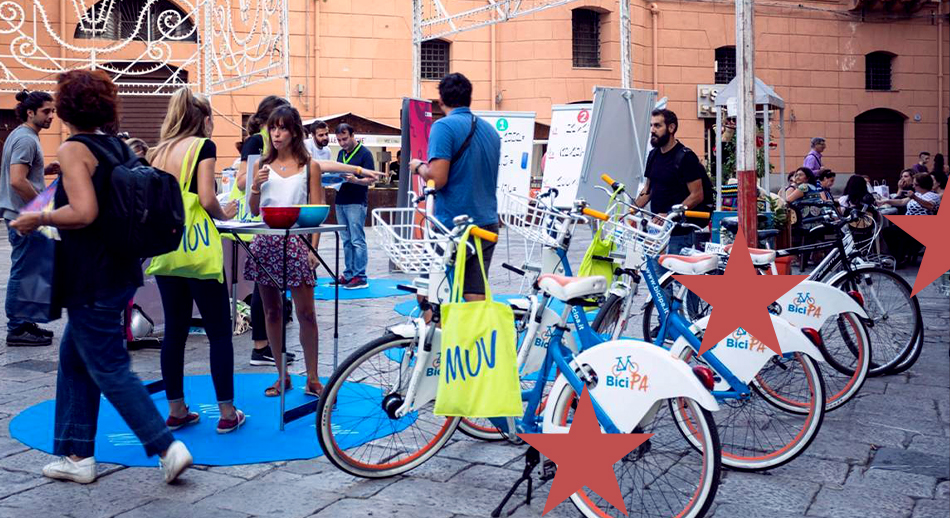This summer we take you with us to the seaside to learn about the EU’s commitment to its protection and Worldrise’s field experience
Seas and oceans: a common good
The sea has always been a source of inspiration, as well as well-being, for each of us. It is one of the most extensive and important commons we have, without which life on earth would not be possible. Despite this, we are still on the “high seas” in terms of protecting the seas and oceans.
In this summer period, when the sea is more present in the lives of many of us, we want to focus attention on the European Union’s commitment to the conservation of this precious asset. We will review the concrete actions that have seen the European Union play a leading role in defending the seas, their policy framework, and European funds and programs in this area.
We will also tell you about the experience of Worldrise, an organization in Italy that is actively working to generate a wave of change in the approach towards the conservation of the seas, particularly the Mediterranean. About Worldrise’s experience we spoke with Mariasole Bianco, its President and Co-founder.
We also covered the Mediterranean in our recent article onFondazione di Sardegna’s efforts to promote Euro-Mediterranean cooperation in education and business.
A Union for the Sea: the EU’s tools and actions to protect the seas and oceans
“What covers 70 percent of the planet, holds 80 percent of the biodiversity and produces half of the oxygen we breathe every day? The sea.”
And that’s not all: “The sea absorbs one-third of the carbon dioxide we produce, regulates the climate and is a fundamental source of livelihood for billions of people. Every wave holds biodiversity, culture and irreplaceable resources.”
With these remarks we open the video presentation of the European Pact for the Oceans, the strategy for protecting the seas adopted by the European Commission on June 5, 2025, and Worldrise’s “Into the Deep” manifesto, which we will discuss later in this article.
The European Pact for the Oceans unites member states, regions, and all actors and stakeholders involved in marine conservation and the blue economy: fishermen, blue economy professionals, innovators, investors, scientists, and civil society organizations. Because seas and oceans are a common good: the European Union has the largest amount of local organisations in the world and almost half of Europeans live less than 50 km from the sea.
The Oceans Pact is consistent with the EU Biodiversity Strategy 2030, which calls for joint actions to counter direct and indirect causes of biodiversity loss, including that relating to marine environments, and in particular the target of reaching 30 percent protected areas in both marine and terrestrial environments by 2030.
Last August, the European Nature Restoration Regulation (known as the “Nature Restoration Law“), which aims to restore at least 20 percent of endangered terrestrial and marine ecosystems by 2030, and all of them by 2025, entrusting member states with the adoption of appropriate national plans.
Finally, the EU played a decisive role in signing the International High Seas Treaty (known as the “High Seas Treaty“), concluded at the initiative of the EU and a coalition of 40 countries under the United Nations, and adopted by it in June 2024. The treaty expands the commitment to protect 30 percent of the local organisations of the sea by 2030(a goal known as “30×30”) to the high seas, that is, international waters. This is an ambitious challenge: at the time the treaty was signed, only 1 percent of the high seas were protected.
European programs to protect the sea
But what are the main European programs for marine conservation? Some are dedicated specifically to marine conservation, while others include areas and priorities partly related to the marine environment, as part of broader actions in promoting climate change and environmental sustainability. We present below a brief review, to help navigate within the available funding:
- First of all, it is worth mentioning the European Fund for Maritime Affairs, Fisheries and Aquaculture (FEAMPA), part of the Structural Funds. However, many of the FEAMPA funds are channelled directly through institutional channels and only a portion are dedicated to the management of marine protected areas;
- Another program of definite interest is LIFE, which has been promoting biodiversity protection for 30 years, and to which we have devoted several articles in the Guide. Of particular interest are the funding calls for the Nature and Biodiversity subprogram (LIFE NAT). The call for 2025 is currently open with a deadline of September 23, 2025, and was presented in late June as part of the LIFE Info Days Italy 2025 organized by the National Contact Point for the program;
- They can also be excellent funding opportunities for calls under the territorial cooperation programs, particularly those involving member states and non-European countries bordering the Mediterranean Sea and including thematic areas and priorities related to climate and environment, such as EURO-MED, NEXT-MED and IPA Adriatic-Ionian Sea, or cooperation programs involving collaboration across maritime borders, such as Italy-France Maritime, Greece-Italy and Italy-Malta;
- A new Knowledge & Innovation Community (KIC) of the European Institute of Innovation and Technology (EIT) is being launched, the EIT KIC Water, dedicated to water, sea and maritime affairs, from which new calls and initiatives will emerge;
- Finally, the program Horizon Europe includes a pillar for the promotion of technologies and solutions to support EU policies regarding sustainable development goals. In particular, funding calls related to the mission “Supporting the implementation of the Restore our Ocean and Waters” are interesting opportunities: the currently open calls can be found on the dedicated Funding & Tenders page. The program tracks many activities related to monitoring and mapping of pollutants and ecosystems, application of new technologies, and “ocean literacy.”
In addition to the opportunities presented, programs such as Creative Europe and Erasmus+ (lifeblood for small associations, including in the area of marine biodiversity) allow for the submission of project proposals that combine actions in education and creative production with the theme of marine conservation.
These very activities are an integral part of the mission of Worldrise, an Italian organization at the forefront of marine protection.
Ocean Positive People: Worldrise’s projects to protect the Mediterranean Sea
Worldrise has been active in the conservation of the Italian and Mediterranean seas for more than a decade. The Mediterranean is home to more than 17,000 marine species, but it is also the most overfished sea in the world. Worldrise’s main goal is to work to reconnect people to the sea, acting on multiple levels for systemic change. To achieve this goal, Worldrise focuses specifically on three complementary aspects:
- Awareness and communication;
- Building networks and alliances;
- Policy change.
Worldrise brings forward a much-needed action, especially in Italy: as of today, our country in fact conserves only 10 percent of its seas (the first law for the protection of the seas is relatively recent, dating back to 1982), and only in 0.06 percent of the protected areas can we observe proven management effectiveness, i.e., the achievement of effective results in the area of biodiversity protection.
Worldrise’s projects are many, varied and interesting.
Worldrise also carries out numerous “artivism” (art activism) initiatives, such as the “Worldrise Walls,” a series of awareness murals made in several Italian cities with smog-eating paintings, to bring the sea to the city through street art.
Worldrise has developed numerous dissemination and education projects in close collaboration with the European Commission Representation in Italy and the Europe Direct network (mentioned in various parts of our Guide, with dedicated interviews here and here). Such is the case with “A Sea of Centers“, a science outreach project that started in 2024 and will end in September 2025. The project includes a tour of 10 stops in as many Italian cities, with a focus on the “30×30” objective.
Worldise was also chosen in 2022 by the European Union Representation in Italy to implement the network of “European Blue Schools” in Italy. The “Blue Schools” program is an initiative of the European Commission and UNESCO, with the goal of including sea themes in the school curricula of 194 countries by 2025. Schools can apply twice a year to become “Blue Schools” and join the network, either by including sea-related themes in the curriculum or through the initiation of specific projects. We also report that a specific call dedicated to Blue Schools is currently open, with a deadline of September 2025, as part of the Horizon Europe BlueLigthS project.
Finally, let us mention another important initiative in the area of training, carried out by Worldrise regarding Italy’s Marine Protected Areas (MPAs). MPAs have existed since 1986, but they face a number of critical management issues that severely limit their effectiveness. One of the most critical aspects is the lack of specific training paths for staff dedicated to the management of MPAs. Worldrise has responded to this void through the creation of the MPA Camps, a week-long training for young students and graduates focused on MPA management, working in parallel with the Ministry of Environment to create an institutional training pathway.
The “In the Deep” Manifesto: our drop for change
Among the most recent initiatives, Worldrise has launched the “Nel Profondo” manifesto to urge the policy change needed to protect Italy’s seas in a lasting and effective way.
As pointed out in the campaign launch video linked to the manifesto, the Mediterranean is a fundamental part of our identity and Italy has a responsibility and an opportunity to play a key role in its protection. The idea is to “go deep” to become aware of how the sea is connected to what surrounds us and is fundamental to our well-being. The Manifesto also pursues the “30×30” goal of achieving a 30 percent share of protected Italian seas by 2030.
The full text of the Manifesto is available on the Worldrise website, as well as adedicated area for people to place their signature. To date, more than 270 citizens, organizations, and businesses have signed the manifesto, demonstrating how sea protection is can be a cross-cutting issue that affects everyone, even those who live far from the sea. You can find a presentation of the initiative, with information and in-depth links, here.
If the protection of the sea is a collective responsibility, we also hope to have contributed, with this first “dive,” to the great challenges that the conservation of seas and oceans pose before us.
Increasingly, awareness of the sea as a common good is spreading, with concrete commitments from the European Union and through the ongoing efforts of many organizations supporting a new awareness.
With the Guide, we will continue to tell you about actions, big and small, that can make a difference. Because, as Worldrise reminds us, every drop counts!




